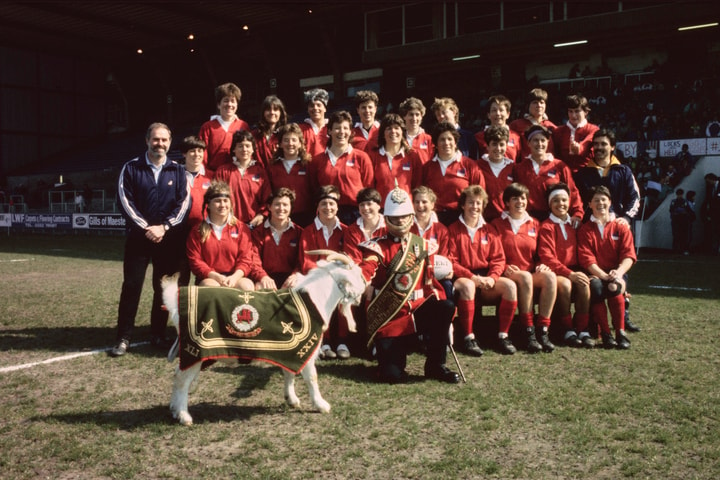'First Ever Women's International Rugby Union International' is loudly declared on the front cover of a folded in half sheet-of-A4 programme, produced to mark Great Britain Women's first match, against France in 1986.

From The Vaults
'First Ever'
The questionable legitimacy of this claim was likely a point of conversation for the French players, five of whom had played for France four years earlier against the Netherlands in Utrecht.
Whether this was a deliberate error is an open question, the match organisers were the Women's Rugby Football Union (WRFU). Accuracy aside, the WRFU were known to have been an organisation that would not willingly pass up the opportunity for a bit of free publicity.
First or not, it remained an auspicious day. Fifteen British players were about to make history and get their first taste of international rugby. The match would be held at the Richmond Athletic Ground on 19 April 1986.
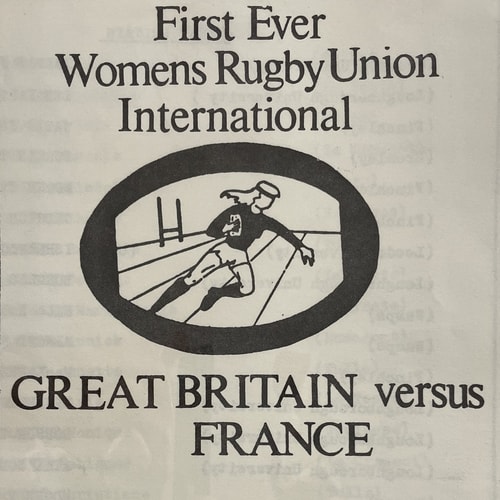
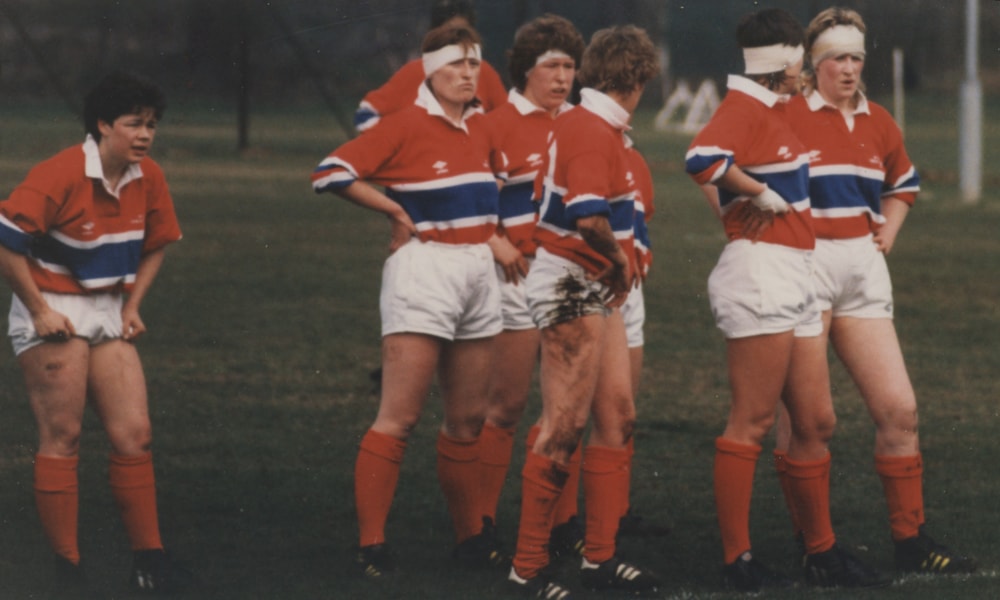
Team GB
Great Britain were captained by Carol Isherwood (pictured, far left), who would also become the inaugural Red Roses (England Women's Team) captain a year later. Alongside her was Lisa Burgess, who would go on to captain and play for Wales until 2006.
GB fly half Karen Almond scored two tries for her side but the experienced French team, some of whom were playing in their sixth international Test match, prevailed to win 14-8.
The side had been selected to represent the best players from England, Ireland, Scotland and Wales combined and would play several times before their eighth and final match in 1990. Competing in the 1988 European Championships, they recorded victories over the Netherlands and Italy before finishing runners up to France.
Although England and Wales felt sufficiently strong to field national sides in 1987, it would take Scotland and Ireland until 1993, before they played their first Test match, against each other.
At this point, the Great Britain Women's side would seem to have served its purpose. However, the men's British & Irish Lions side provided an aspirational template for the women's game. In 2000, Emma Mitchell who had played 5 times for Great Britain and gone on to captain the Red Roses, along with fellow England international Janice Byford brought forward plans for a British & Irish Lionesses side to tour Australia and play Test matches against Australia concurrently with the 2001 men's tour.
The proposal found favour with the Lions committee, who promised to assist Mitchell in identifying sponsors and media partners. The Wallaroos (Australia Women's Team) management and players were in full support and 65 British & Irish players, of whom 30 were to be selected, made themselves available.
The plan, however, failed to receive the official backing of the Australia Rugby Union (ARU) and consequently sponsors were unable to commit.
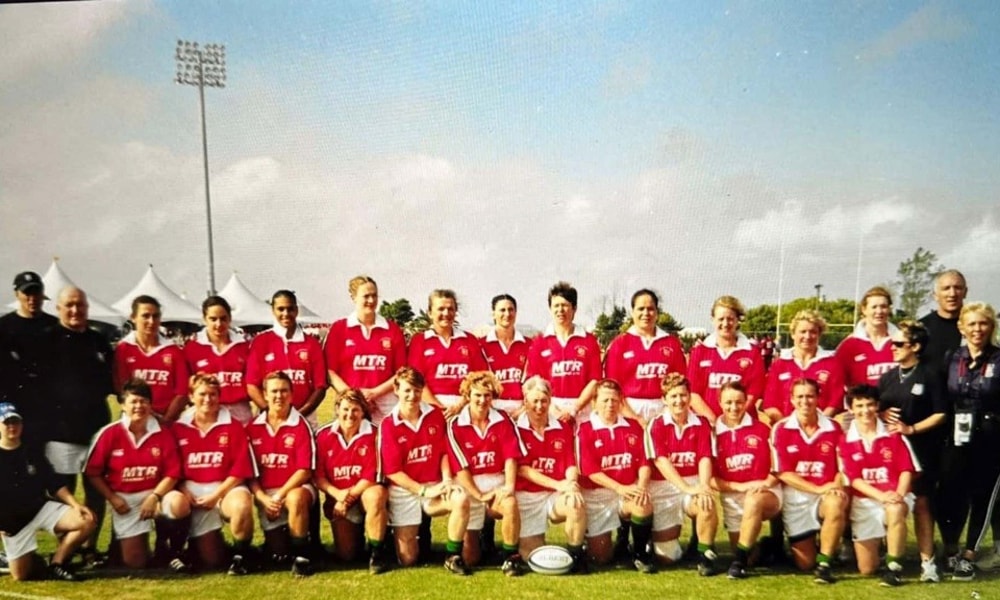
2002
The dream didn't quite die there though. In 2002, several recently retired and still active British and Irish internationals formed the Classic British and Irish Lionesses side to play against the Golden Eagles (USA Veterans) side in Bermuda. It was the first of several fixtures and featured some former Great Britain Women players, including Lisa Burgess, Emma Mitchell and Gill Burns. It seemed that the concept of a British & Irish side was simply too good to let go of.
In the intervening years, the pioneering spirit of these early women's players and subsequent generations of talented players has gradually completely transformed the landscape of women's rugby.
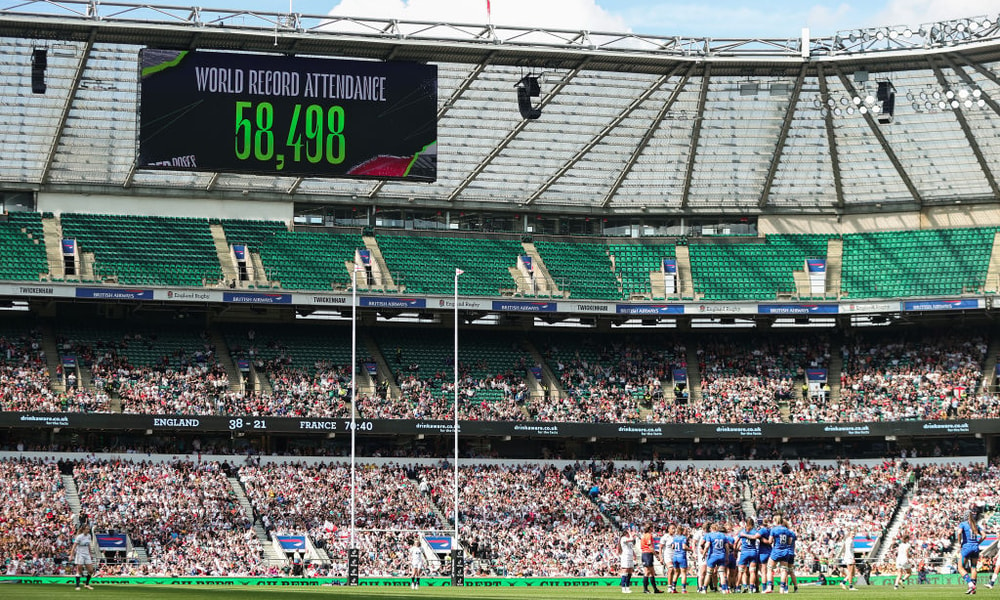
The professional era
The first professional contracts were awarded to members of the Red Roses Sevens team in 2014 and professional contracts would subsequently be rolled out across the sides that compete in the Women's 6 Nations. A world-record 42,597 people watched the 2021 Rugby World Cup Final at Eden Park. Then, in 2023, Twickenham Stadium (now Allianz Stadium) hosted its first ever stand-alone women's Test match. 58,498 people turned out to watch history being made as the Red Roses defeated France to claim the Six Nations Grand Slam.
The same stadium will host the 2025 Rugby World Cup final and, in 2024, the British & Irish Lions announced that a Lions Women's team would return in an official capacity, to tour New Zealand and play a full Test series against the Black Ferns (New Zealand Women's Team) in 2027.
So in 2027 we will have come full circle and those lucky enough to be selected to wear the red jersey should do so in the knowledge that, although officially the first, they are not quite the first and are indeed descended from the pioneering greats of international women's rugby's early formative years.

